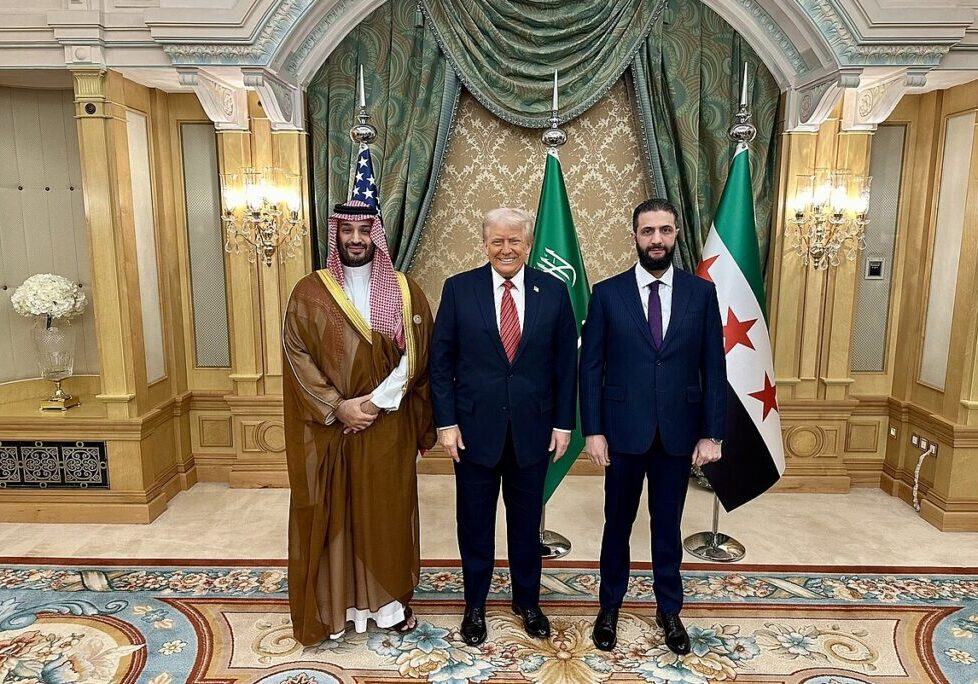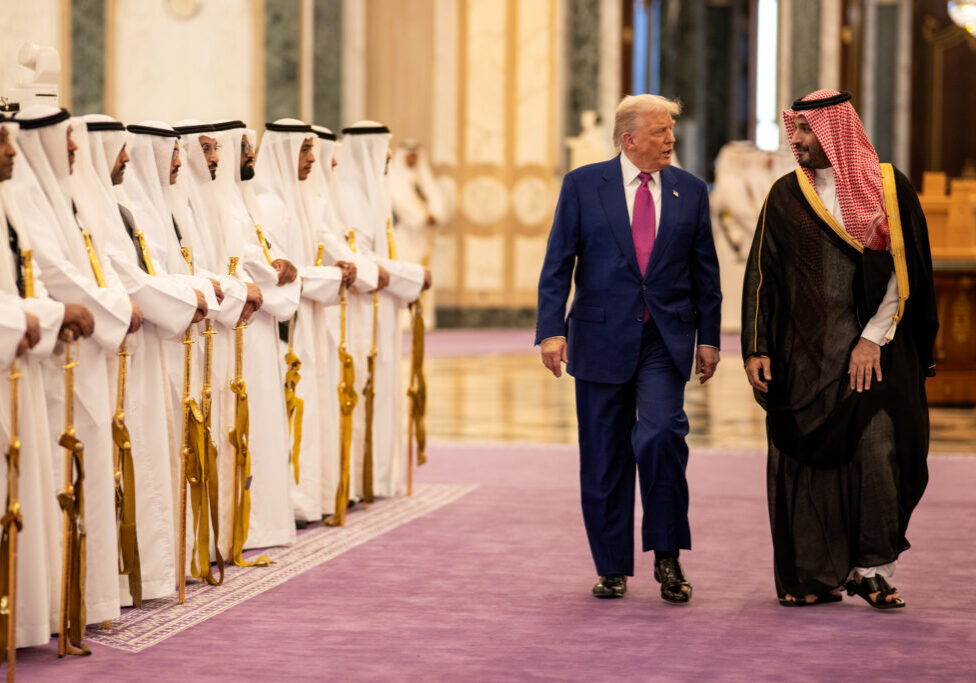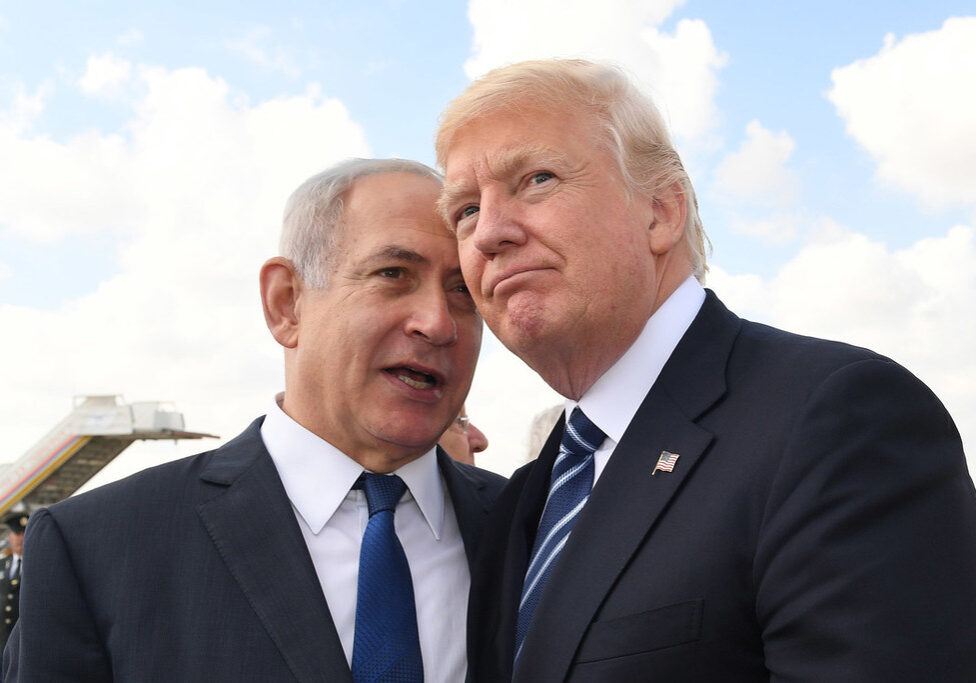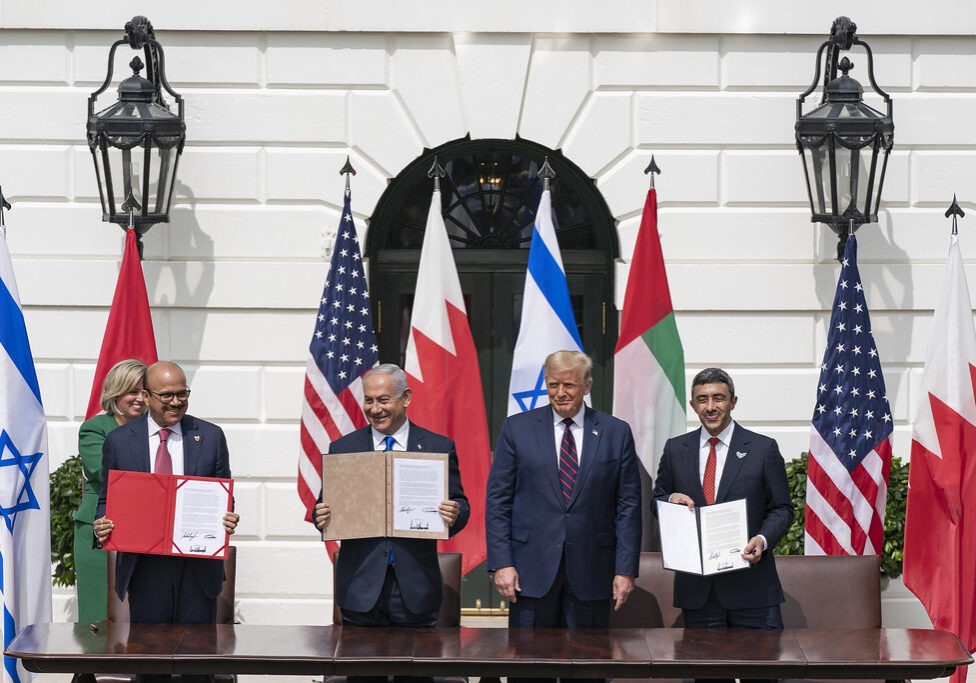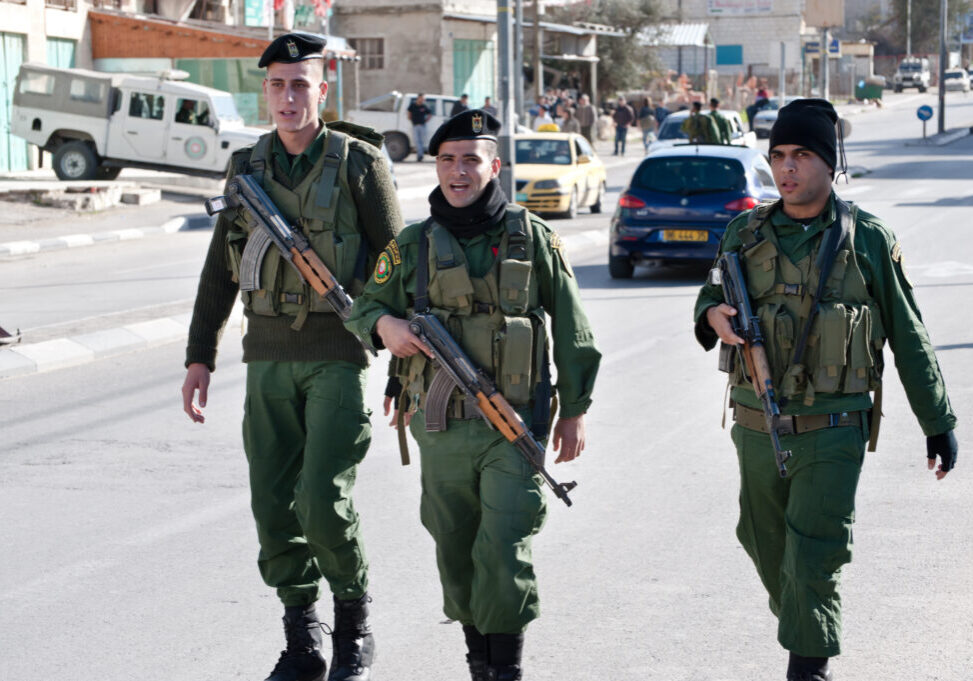Australia/Israel Review
Essay: To Kingdom Come
Nov 23, 2022 | David Schenker, Robert Satloff
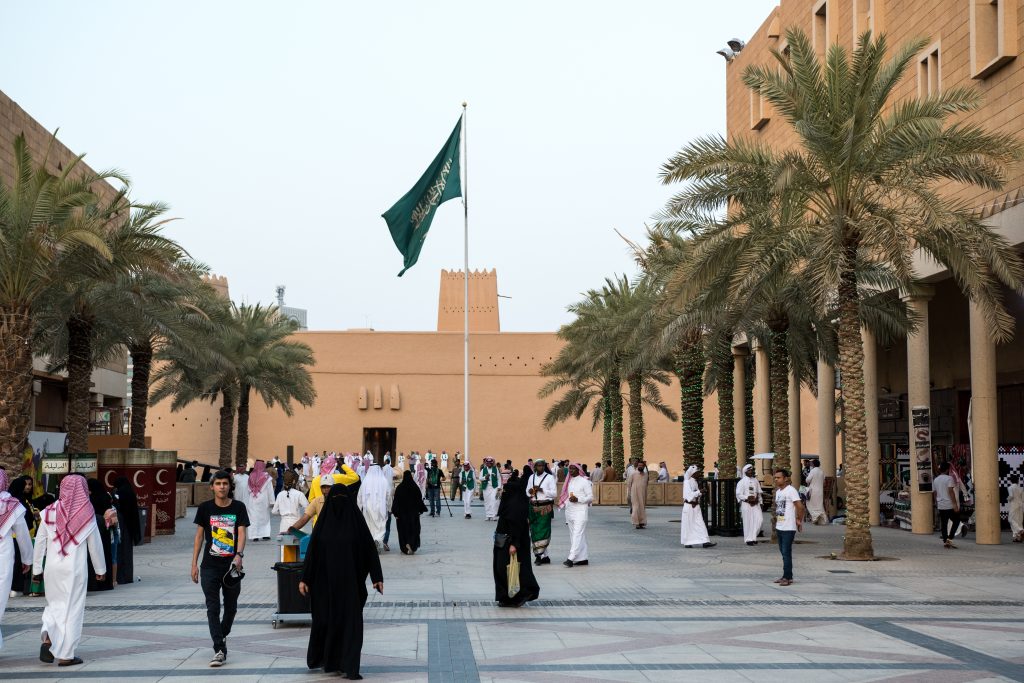
The View From Inside Saudi Arabia
Washington Institute for Near East Policy Executive Director Dr. Robert Satloff, together with Taube Senior Fellow David Schenker, recently led a 30-person delegation of Institute trustees and staff on a weeklong visit to Saudi Arabia. The following are Dr. Satloff’s insights from the trip.
The Washington Institute delegation visited five cities in seven days – Riyadh, Abha, Dammam, al- Ula, and Jeddah – travelling throughout the kingdom to see different topography and geography, observe various aspects of Saudi society and culture, and assess the status of political, economic, and sociocultural reform.
In addition to political meetings, the group spent an evening with artists at a contemporary gallery; visited King Saud University’s artificial intelligence centre and interacted with a mixed group of male and female students; visited the small and medium enterprise promotion centre and met with high-tech start-up entrepreneurs; visited Aramco headquarters to meet its corporate leadership and see its operations; travelled to the Nabatean monuments of al-Ula, a major target of tourism investment; visited the Riyadh “giga-project” of Dariyah, a massive UNESCO site where Saudis are rewriting their national origin story; and spent an enjoyable evening in the Boulevard zone of the Riyadh Season festival, where thousands of Saudis were playing, eating, and listening to music.
In the course of their trip, the delegation met with Crown Prince Muhammad bin Salman and an array of other officials: the Defence Minister, Foreign Minister, Minister of State for Foreign Affairs, Secretary- General of the Muslim World League, Chief of the Joint Forces Command, the Human Rights Commission, and various US and British diplomats. None of these officials will be cited individually, and none of the observations below should be ascribed to any particular one of them.
KEY THEMES
Five words sum up my main thematic observations:
Grievance. Senior leaders acknowledged serious errors such as the murder of Jamal Khashoggi, but complained that the kingdom gets blamed “ten times” more than other countries that commit similar or more extensive abuses, especially America’s adversaries. They also bitterly noted what they believe was US indifference to Saudi security concerns, specifically citing the withdrawal of Patriot air defence systems, the decision to remove Yemen’s Houthi movement from the State Department’s Foreign Terrorist Organisations list, and the suspended delivery of weapons systems for which Riyadh had already paid.
Ambition. Saudi Arabia’s national security strategy is based on growth, and the leadership’s ambition in this regard is impressive. Senior leaders expressed great pride at having the fastest-growing G20 economy (at a rate of 7.5-8%), increasing its GDP to more than US$1 trillion (~A$1.48 trillion) while maintaining an enviable inflation rate of just 2.5%. And the kingdom’s future is characterised by massive projects involving trillions of dollars in investments. There is wide recognition that this would not be possible without the talents of Saudi women – female workforce participation has grown dramatically, more than doubling from the mid-teens to above 30% in less than a decade.
Identity. One of the most striking aspects of our trip was seeing the emergence of a strong, self-assured Saudi nationalism in which Islam is just one of many attributes, not a determinative or particularly central one. Saudis made a point of showing us examples of this nationalism: the Dariyah project in Riyadh, which tells the story of the first Saudi state 300 years ago without referencing the religious hierarchy; the Aramco headquarters compound, which is designed to project competence and professionalism; and al-Ula, which celebrates the achievements of a pre-Islamic culture in the Arabian Peninsula.
Energy. This word has a dual meaning for Saudis today: energy in terms of oil, which Riyadh is betting will remain the key ingredient of global growth for many decades even with a major push on renewables; and energy in terms of the human drive to create, innovate, and grow, which we saw in numerous settings, from universities to tech start-ups.
Uncertainty. Despite this impressive progress, several questions remain. One concerns the “losers” in the current reforms – that is, the morality police and conservative religious leaders who have been stripped of power and authority, along with others from the older generation for whom change is disruptive and threatening. Where does this minority stand on the kingdom’s evolving future? Why are they being so quiet, and what might trigger them to vocally oppose the ongoing transformation? A second question concerns the oddly dissonant aspect of human rights. In contrast to Riyadh’s polished, well-crafted approach to many other issues, official discussion of human rights remains tone-deaf. How can the kingdom be cutting-edge in so many areas of reform yet so backward in this area?
OBSERVATIONS ON FOREIGN POLICY
US relations. We are clearly facing a moment of great tension in USSaudi relations – a moment that some characterise as “the worst since the 1973 war.” My view is that the two governments will work through their current disagreement over oil production, and that the level of recrimination will likely dip over the next two months. However, I fear that the relationship’s foundation is weakening.
The fact that the empowered poles of the American political spectrum – the progressive left and the “America First” right – will increasingly be in a position to clash directly with a more assertive, nationalistic, and audacious Saudi Arabia is a recipe for fracturing the bilateral partnership. Both governments say they need and want each other as partners, but both are simultaneously taking measures that signal they are prioritising selfinterest, not cooperation. This cycle has the potential to feed on itself in a highly destructive way.
Iran. Broadly speaking, Saudi leaders say that economic growth is the heart of their strategy to defeat their main adversary in Teheran. According to this view, a strong, vibrant, self-assured Saudi economic powerhouse will leave the Islamic Republic in the dust. But fear of Iranian ambitions and capabilities is real.
The kingdom is convinced that Teheran is on a mission to gain nuclear weapons capability within the next two years, and senior officials believe that if the regime succeeds, it will not hesitate to use the bomb, either directly – against Israel – or indirectly as a lever to bully the region. Saudi leaders say they have yet to hear a realistic and detailed Plan B to prevent this given that the diplomatic Plan A (reviving the Joint Comprehensive Plan of Action nuclear agreement) is, in their view, no longer operative. They also warn that if Iran gets a bomb, Washington should expect Saudi foreign policy to shift in order to accommodate Teheran and safeguard the kingdom’s security – hardly surprising when one considers that this scenario would mean the emphatic non-proliferation promises of successive US presidents had been hollow.
Yemen. However one characterises the Yemen war, Saudi Arabia clearly wants out of the conflict today. But it is not at all clear that the Houthis and their Iranian backers will go along with this. Indeed, at this moment of US-Saudi tension, Teheran is presumably keen on testing how Washington will respond if the Houthis or Iran-backed militias in Iraq start launching rockets or drones into the kingdom again. This is a very real and urgent concern.
Israel. Five years ago, when a similar Washington Institute delegation visited Riyadh, we heard senior leadership characterise Israel as a “potential ally”. Now we see evidence of creeping normalisation all around, with businesspeople, bankers, and athletes beginning to visit the kingdom in their professional capacities.
Yet one would be mistaken to conclude that full normalisation is right around the corner. This is not due to lack of progress on the Palestinian issue, but rather to the fact that normalisation – while certainly beneficial to the Saudis – is less important to them than it was to the states that signed onto the Abraham Accords. For one thing, the kingdom will be grappling with other major political, social, and economic reforms and has to carefully consider the manner and order in which they are implemented.
Two such reforms on the agenda are lifting the ban on alcohol consumption (which will most likely begin with restricted tourist zones where drinking is permitted) and allowing organised non-Muslim prayer (likely a consequence of Riyadh’s requirement that major corporations move their regional headquarters to the kingdom in order to do business with the government). A society can only take so much reform at any one time, and normalisation with Israel would compete with these items.
Still, we heard some remarkable talk about this issue, including a proposal from a very senior Saudi official that normalisation could occur more rapidly if the United States were willing to take three major steps toward the kingdom:
- A congressionally endorsed affirmation of the US-Saudi alliance.
- A commitment to follow through on weapons supplies as though Saudi Arabia were a NATO-like country (the fact that it is not on the lengthy list of “major non- NATO allies” must rankle Riyadh).
- An agreement that allows the Saudis to exploit their extensive uranium reserves for a restricted civil nuclear program.
How much of this proposal was an opening gambit for actual talks on these issues is not clear. What is clear is that the Saudis have thought out the mechanics of what they want from Washington in exchange for normalisation, similar to what other countries have sought for their own outreach to Israel. That alone suggests Riyadh is well down this path.
BOTTOM LINE
A visitor cannot but be impressed by the pace, scope, and content of Saudi Arabia’s ongoing transformation. Americans may take many of these changes for granted (such as lifting the ban on public music), but they are revolutionary in the Saudi context.
The paradox is that the kingdom has a lot more room for freedom, but not for dissent. Since the former naturally produces the latter, figuring out that conundrum will be one of Riyadh’s main challenges in the years ahead.
As the Saudis grapple with this challenge, America has a huge stake in their success – not the success of any one person, but success in completing a radical transformation. This would be the best insulation against Islamist extremism, which formerly competed with oil as Saudi Arabia’s prime export. It is also crucial to ensuring that the eventual post-oil landing is a soft one, which this part of the world will sorely need in order to avoid truly convulsive, even violent change. In my view, this is an under-recognised strategic imperative.
Dr. Robert Satloff is Executive Director of the Washington Institute for Near East Policy. © Washington Institute (Washingtoninstitute. org), reprinted by permission, all rights reserved.
David Schenker adds:
During the trip to Saudi Arabia, we witnessed a largely optimistic and seemingly happy population. Granted, our sample size was limited to five cities, but this observation is not simply anecdotal – Saudi Arabia has moved from 36th to 25th in the World Happiness Report rankings since 2016. This development is apparently linked to the ambitious social and economic reforms undertaken by the Crown Prince.
Throughout the country, megaprojects are under way to entice tourists to the previously closed kingdom, diversify the economy, and provide jobs. On the outskirts of Riyadh, the Dariyah Gate Project is under way. Taking up a plot of land the size of Manhattan, it is envisioned as a carbon-neutral city with electric vehicles driven above ground and gas-powered vehicles below. The US$50 billion (A$75 billion) project aims to attract 27 million visitors a year.
Al-Ula, a tourist destination with 2,000-year-old Nabatean ruins, is now also home to a 600-seat concert venue that hosted Mariah Carey a day before we arrived.
In Abha – a breathtaking destination with a temperate climate, 3,050 metre peaks, and indigenous baboons – the Government is expanding the airport to accommodate two million tourists a year. When we arrived, Riyadh’s ceasefire with Yemen’s Iran-backed Houthi rebel movement had just lapsed and the locals were bracing for renewed drone and missile attacks – a frequent occurrence since the Houthis took over large swathes of territory.
While many Saudis appear pleased with the social and economic transformation, this progress should not be mistaken for political liberalisation. Male guardianship policies have been revoked and the religious police are now sidelined, but few other advances have been made on human rights. Dual citizens and Saudi citizens living abroad are reportedly still being arrested for speaking critically of Saudi leaders. When asked about these matters, the new head of the Saudi Human Rights Commission claimed that the kingdom faced no human rights challenges.
David Schenker is the Taube Senior Fellow at The Washington Institute and a former US Assistant Secretary of State for Near Eastern Affairs.
Tags: Saudi Arabia

